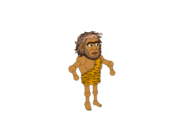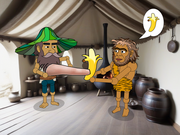遊吟詩人
Characters and words in 遊吟詩人
to chant / to recite / to moan / to groan / cry (of certain animals and insects) / song (ancient poem)
poem / CL:首[shou3] / poetry / verse
诗
=
寺
+
讠
:
Just in front of the space station (Ø1)
Sherlock Holmes (sh) suffers a head lesion
By bumping his head on a Buddhist shrine (寺).
"Don't you drink anymore wine!"
Is written on an advertisement pole (讠):
"Better follow our Buddha's role!"
"How can drinking wine be a crime?"
Sherlock, rubbing his head, has to whine.
"I shall return back to my home,
I'm already annoyed by this little poem. (诗)"
Sherlock Holmes (sh) suffers a head lesion
By bumping his head on a Buddhist shrine (寺).
"Don't you drink anymore wine!"
Is written on an advertisement pole (讠):
"Better follow our Buddha's role!"
"How can drinking wine be a crime?"
Sherlock, rubbing his head, has to whine.
"I shall return back to my home,
I'm already annoyed by this little poem. (诗)"
person; people / CL:個|个[ge4],位[wei4]
Words with 遊吟詩人
遊吟詩人
is not used as a component in another word.
Sentences with 遊吟詩人
遊吟詩人 currently does not appear in any sentence.

